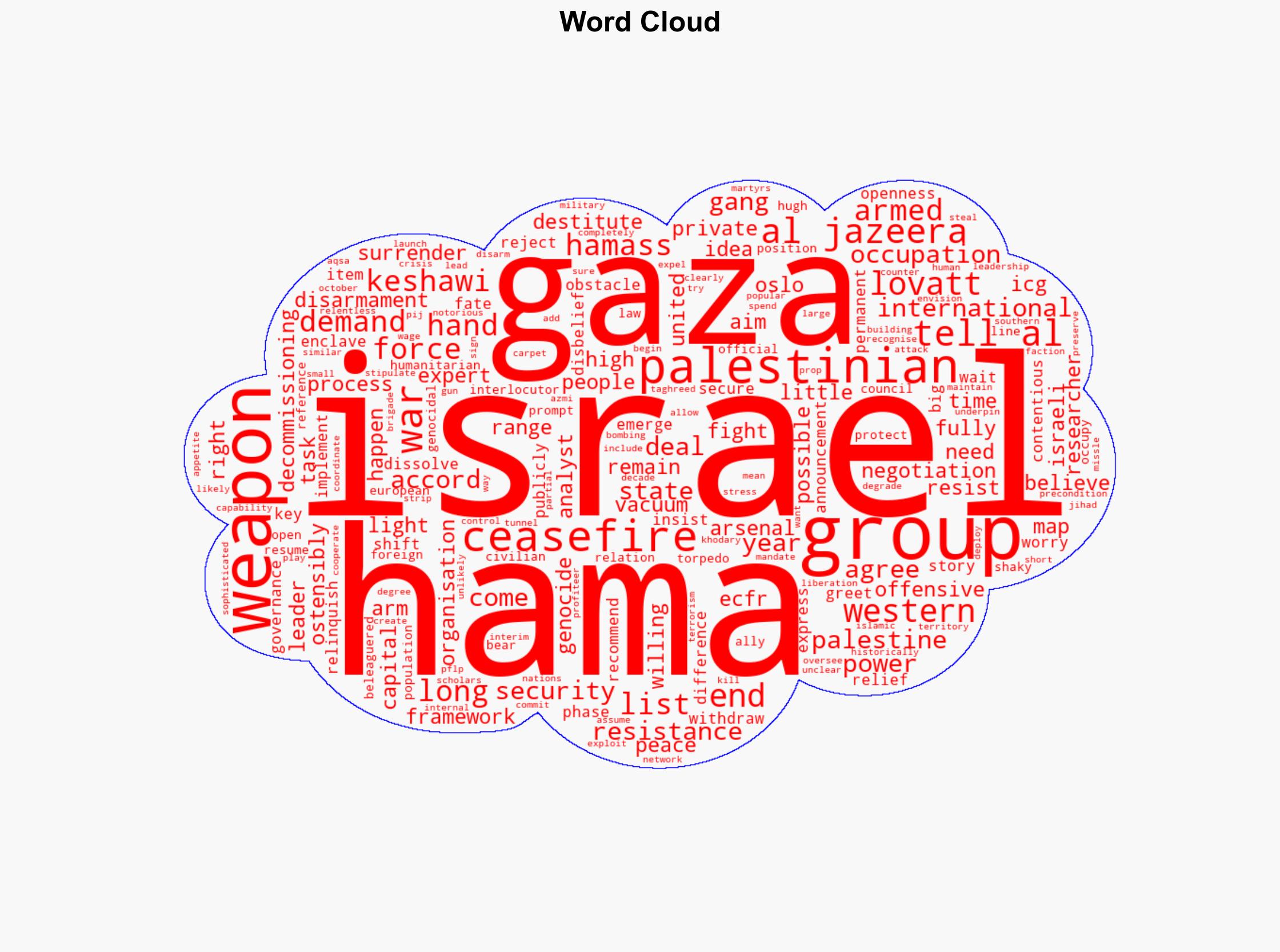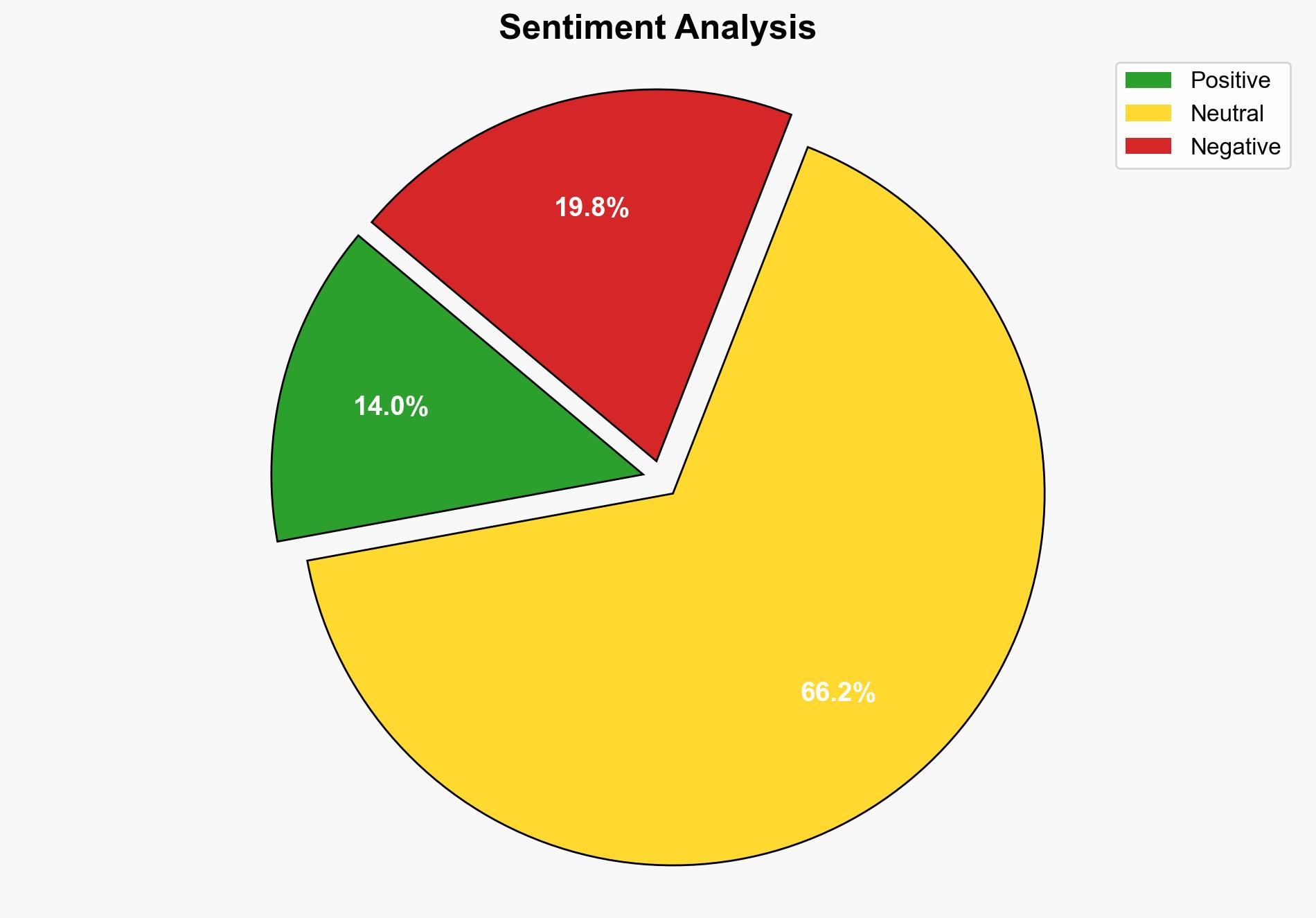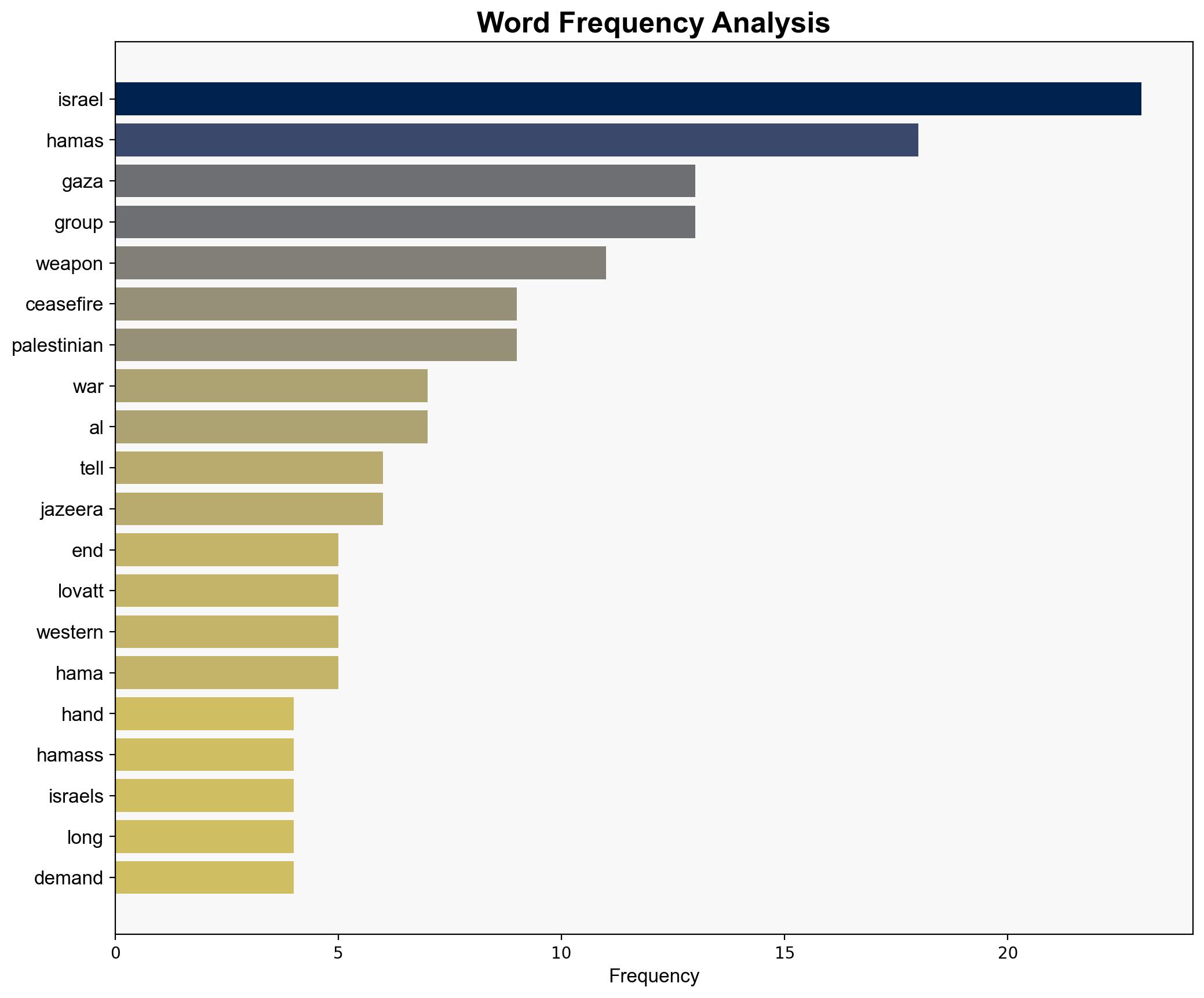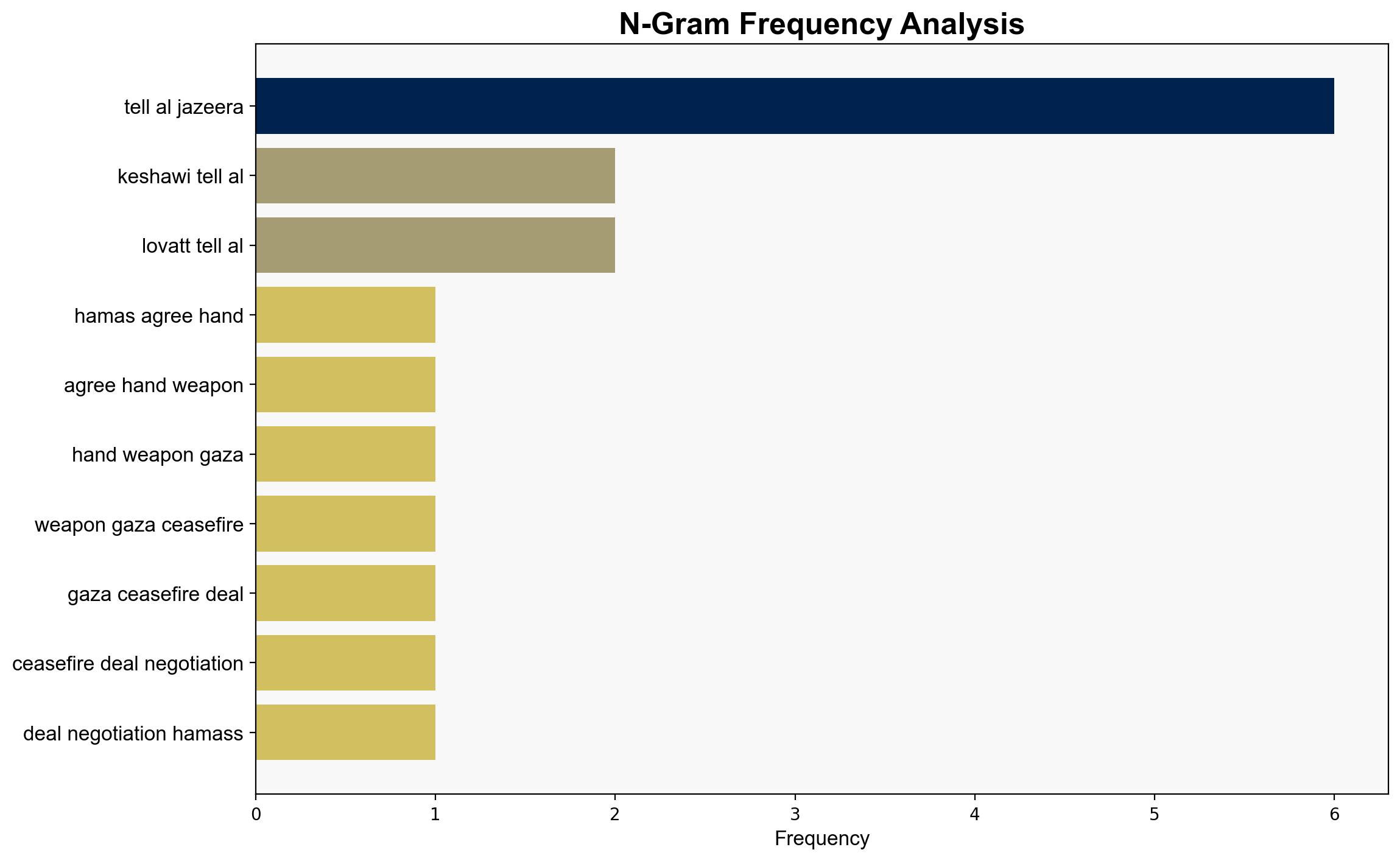Will Hamas agree to hand over its weapons as part of a Gaza ceasefire deal – Al Jazeera English
Published on: 2025-10-09
Intelligence Report: Will Hamas agree to hand over its weapons as part of a Gaza ceasefire deal – Al Jazeera English
1. BLUF (Bottom Line Up Front)
The most supported hypothesis is that Hamas will not fully disarm as part of a Gaza ceasefire deal, but may agree to a phased decommissioning of offensive weapons. This assessment is based on the group’s historical stance on armed resistance and the strategic importance of maintaining some military capability for internal security and deterrence. Confidence level: Moderate. Recommended action: Engage in diplomatic efforts to facilitate a phased disarmament process while ensuring regional stability.
2. Competing Hypotheses
1. **Hamas will agree to fully disarm as part of the ceasefire deal.** This hypothesis suggests that Hamas may see disarmament as a necessary step to achieve a lasting peace and improve relations with Israel and the international community.
2. **Hamas will not fully disarm but may agree to a phased decommissioning of offensive weapons.** This hypothesis posits that while Hamas may be open to reducing its offensive capabilities, it will retain some military assets for defense and internal security purposes.
Using ACH 2.0, the second hypothesis is better supported due to Hamas’s historical emphasis on armed resistance and the strategic need to maintain some military capability.
3. Key Assumptions and Red Flags
– **Assumptions**: It is assumed that Hamas values its military capability as a deterrent and for internal security. It is also assumed that Israel will continue to demand disarmament as a precondition for peace.
– **Red Flags**: The potential for miscommunication or misinterpretation of intentions between parties. The lack of clarity on the extent and verification of disarmament could undermine trust.
– **Blind Spots**: The internal dynamics within Hamas and potential dissent against disarmament are not fully explored.
4. Implications and Strategic Risks
– **Geopolitical Risks**: Failure to reach an agreement could lead to renewed hostilities, affecting regional stability.
– **Security Risks**: Partial disarmament may create power vacuums that could be exploited by other militant groups.
– **Psychological Risks**: The perception of weakness or betrayal among Hamas supporters could lead to internal strife.
5. Recommendations and Outlook
- Engage in multilateral diplomacy to support a phased disarmament process, ensuring verification mechanisms are in place.
- Scenario-based projections:
- Best Case: Successful phased disarmament leads to lasting peace and improved regional relations.
- Worst Case: Breakdown of negotiations results in renewed conflict and regional instability.
- Most Likely: Partial disarmament with ongoing tensions and periodic skirmishes.
6. Key Individuals and Entities
– Hugh Lovatt (European Council on Foreign Relations)
– Azmi Keshawi (International Crisis Group)
– Taghreed Khodary (Analyst)
7. Thematic Tags
national security threats, counter-terrorism, regional focus





